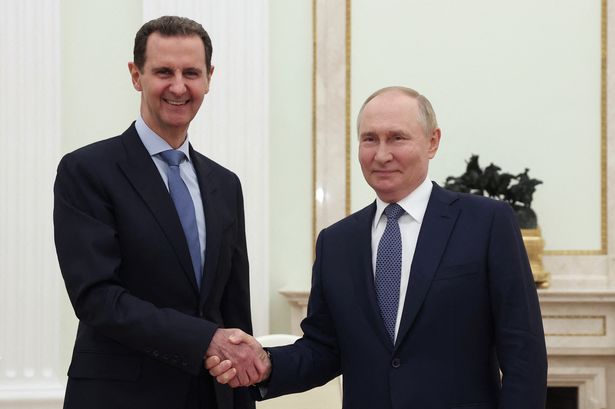The downfall of Bashar al-Assad, culminating in the end of his family’s 54-year reign over Syria, marks a pivotal moment in the nation’s history, concluding a brutal 14-year war that has reshaped the geopolitical landscape of the Middle East. Assad’s departure for Moscow, accompanied by his family, symbolizes the complete collapse of his authority and the triumph of the rebel forces who fought relentlessly against his regime. This dramatic shift in power leaves Syria at a crossroads, facing an uncertain future as it grapples with the immense challenges of rebuilding a nation shattered by years of conflict, displacement, and humanitarian crisis. The transition of power, while signifying the end of one era, also ushers in a period of immense complexity, fraught with potential instability and the need for a comprehensive and inclusive reconstruction process.
The protracted Syrian conflict, ignited by the Arab Spring uprisings in 2011, evolved from peaceful protests demanding democratic reforms into a full-blown civil war, drawing in regional and international actors, and becoming a breeding ground for extremist groups. Assad’s regime, notorious for its brutal suppression of dissent, employed violent tactics, including chemical weapons, against its own people, leading to widespread condemnation and international sanctions. The war has resulted in the deaths of hundreds of thousands of civilians, the displacement of millions more, and the destruction of vital infrastructure, leaving Syria in ruins. The toppling of Assad, therefore, represents not only a political victory for the opposition but also a glimmer of hope for a nation yearning for peace, stability, and a future free from oppression.
The intricacies of the post-Assad era are multifaceted, encompassing the immediate need to establish a transitional government, address the humanitarian crisis, disarm and reintegrate various armed groups, and embark on the arduous task of national reconciliation. The presence of numerous factions within the rebel movement, each with its own agenda and ideology, presents a significant challenge to forming a unified and cohesive governing body. The influence of external actors, including Russia, Iran, and Turkey, further complicates the situation, as their competing interests and agendas could potentially hinder the establishment of a stable and independent Syria. Moreover, the deeply ingrained sectarian divisions within Syrian society, exacerbated by years of conflict, pose a significant obstacle to achieving genuine national reconciliation.
Reconstructing Syria after such widespread devastation will require a long-term, multi-pronged approach, involving massive international aid and investment. Rebuilding infrastructure, including hospitals, schools, and housing, is crucial for providing basic services to the population and facilitating the return of displaced Syrians. Addressing the psychological trauma inflicted by years of war and fostering a culture of tolerance and coexistence will be essential for healing the deep wounds of the conflict. Furthermore, establishing a just and equitable legal framework, promoting accountability for past atrocities, and ensuring respect for human rights will be crucial for building a democratic and inclusive society.
The future political landscape of Syria remains uncertain, with various scenarios possible. Establishing a truly representative government, encompassing all segments of Syrian society, including different ethnic and religious groups, will be paramount to ensuring stability and preventing further conflict. The role of external actors in shaping the future of Syria will also be critical. The international community must play a more active and coordinated role in supporting the transition process, providing humanitarian assistance, and promoting a peaceful and inclusive political settlement. This includes addressing the root causes of the conflict, promoting good governance, and ensuring that all parties are held accountable for their actions.
The overthrow of Bashar al-Assad marks a turning point in Syrian history, presenting both opportunities and challenges. While the end of his rule signifies the potential for a new beginning, the path toward a peaceful, stable, and democratic Syria is fraught with complexities. The long and arduous process of rebuilding the nation will require sustained commitment from the Syrian people, regional actors, and the international community. The success of this endeavor will depend on the ability of all stakeholders to work together, prioritize the needs of the Syrian people, and build a future where human rights, justice, and peace prevail. The world is watching, and the hope is that Syria can emerge from the ashes of war, stronger and more resilient, to create a better future for generations to come.














